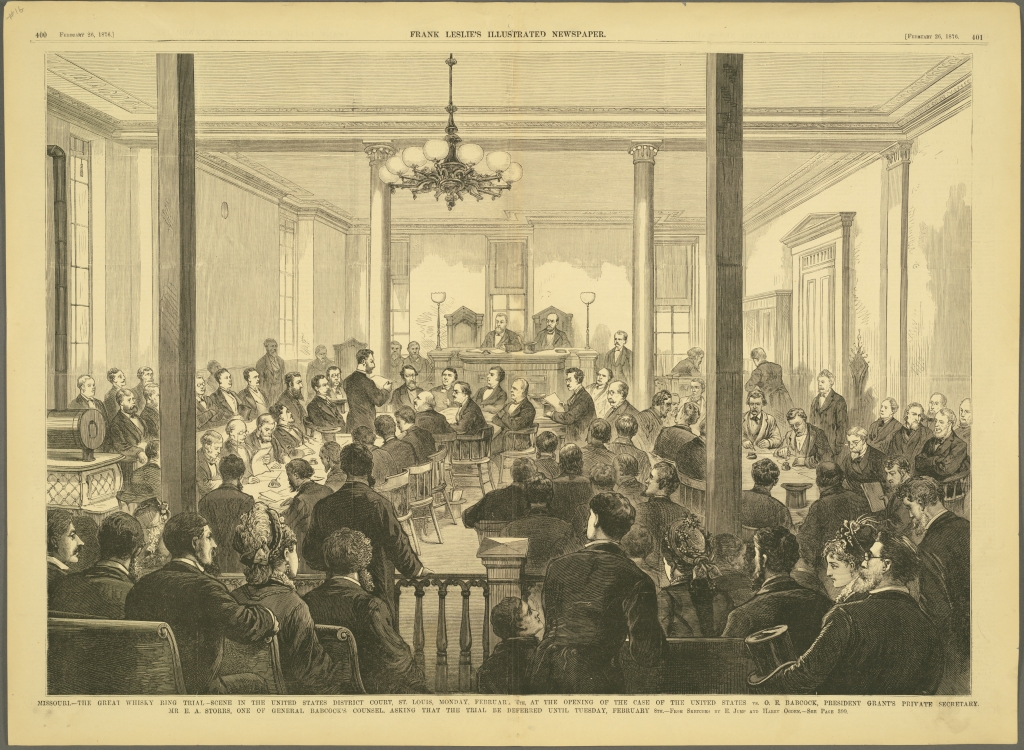This blog article was written by John D. Gordan, III, and it’s a preview of his Judicial Notice Issue 15 article on United States v. William Fullerton. Mr. Gordan is a graduate of the Harvard Law School and clerked from 1969-1971 for the Hon. Inzer B. Wyatt, U.S. District Judge (S.D.N.Y.). From 1971-1976 he was an Assistant U.S. Attorney for the Southern District of New York and thereafter engaged in full-time private practice in New York City until 2011. He was one of the founders of the Historical Society of the New York Courts and a member of its board; several of his articles have previously been published in Judicial Notice. His most recent book is entitled This Practice Against Law — Cuban Slave Trade Cases in the Southern District of New York, 1839-1841.
Judicial Notice Issue 15 is on the way, but we ran into a slight delay and are unable to send the newest edition to your homes. Who are the four men profiled in this new issue? Find out each week as our authors preview their impressive articles.
The new issue of Judicial Notice contains an article about the trial of William Fullerton, who in 1867 sat on the New York Court of Appeals. On September 14, 1868, Fullerton was appointed by President Andrew Johnson to prosecute evaders of the 1864 federal whiskey tax in the federal court in New York. On November 23, 1868, the United States Attorney for the Southern District of New York, Samuel G. Courtney, obtained Fullerton’s indictment for alleged participation in the shakedown of a Revenue Collector in June 1868. Earlier in November, Fullerton had traveled to Washington to warn the President and the Secretary of the Treasury that Courtney was in league with the whiskey tax evaders. That warning had earlier been given by John M. Binckley, a former Acting Attorney General who was the first to be assigned responsibilities similar to Fullerton’s but who resigned after a month. Fullerton was tried and acquitted in March 1870.
Surprising as this story sounds, it nevertheless pales in comparison with the “Whiskey Ring” conspiracy centered in the Midwest, primarily St. Louis, magnified starting in 1871, with the assignment of John McDonald to St. Louis as Supervisor of Internal Revenue for the Midwest. Apparently conceived in aid of political fundraising, the “Whiskey Ring”, operated by local Internal Revenue officers in collaboration with distillers and other participants in the manufacturing process, generated substantial illicit revenues through the evasion of the whiskey tax. Some of these moneys were applied to the campaign expenses of President Ulysses S. Grant.
This defalcation of what should have been federal tax revenues was imperiled when Benjamin Bristow was appointed Secretary of the Treasury in June 1874. His efforts to thwart the conspiracy by the wholesale transfer of Internal Revenue supervisors was blocked by interference from the White House emanating from the President’s private secretary and faithful aide during the Civil War, Orville Babcock. Bristow persisted, and in May 1875 over two hundred participants in the Ring were arrested, many of whom pleaded guilty. Successful prosecutions of McDonald and other Internal Revenue and Treasury officials were brought by the United States Attorney in St. Louis, David P. Dyer, assisted by the appointment of John B. Henderson, formerly a United States Senator from Missouri. President Grant, however, soon ordered Henderson discharged upon learning of his remarks about corruption in Washington in his summation at one of the trials.
In December, 1875, Orville Babcock was indicted, based substantially on his communications with the St. Louis conspirators in telegrams obtained from Western Union. President Grant considered this indictment a personal affront and responded by giving a deposition for the defense at the White House, attended by the Chief Justice and the Attorney General, Edwards Pierrepont, who as Courtney’s successor as United States Attorney had participated in the trial of William Fullerton. President Grant’s deposition was read to the jury at Babcock’s trial, the presiding judge at which was John F. Dillon, a distinguished legal scholar who later left the bench to teach at Columbia and Yale Law Schools and to practice law in New York City. Babcock was acquitted; according to the memoirs of David Dyer, later a District Judge, it was Judge Dillon’s treatment of President Grant’s deposition in his instructions to the jury that led to this result.
These cases cry out for a comprehensive study.

